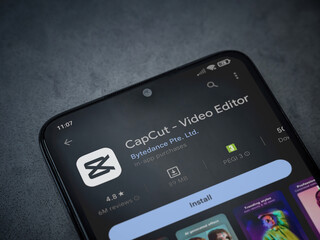If you’re searching for how to contact @toolmilk, you’re likely looking for support, collaboration opportunities, or simply to ask a question. Here’s the short answer: the best way to contact @toolmilk is through direct messaging on their active social media platforms like Instagram or Twitter, or via any listed business email on their profiles.
This guide breaks down everything you need to know—from locating @toolmilk’s correct channels, writing effective outreach messages, avoiding scams, and what to do if you’re being ignored. Let’s get into it.
Who Is @toolmilk and Why You Might Want to Contact Them
@toolmilk is a handle or username often associated with a digital creator, influencer, brand, or service. Depending on the platform, the @toolmilk account could belong to someone offering tools, templates, design assets, or even content creation support. Many people try to contact @toolmilk for collaboration, licensing, troubleshooting, or just general inquiries about their content or products.
Before reaching out, it’s helpful to understand who runs the account and what they’re known for. On platforms like Instagram or TikTok, they may be posting visual content; on Twitter or X, they may engage in community conversations or drops.
Best Ways to Contact @toolmilk
Direct Messaging on Social Media
This is the fastest and most common route. Visit the profile (e.g., instagram.com/toolmilk or twitter.com/toolmilk) and send a concise message explaining your intent.
Tip: Keep it short, respectful, and clear. Messages like “Hey, I’d love to collaborate on a project. Are you open to partnerships?” work better than a long paragraph.
Check for Business Contact Info
Instagram and Twitter both allow users to add contact buttons or list emails. Tap “Email” or look under the “About” or “Bio” section. If @toolmilk is serious about their brand, you’ll likely find a professional email.
Use LinkedIn or Personal Website
If @toolmilk is part of a larger creative business, they may have a portfolio site or LinkedIn profile. You can find those via Google or by checking link-in-bio tools like Linktree or Beacons.

Writing the Perfect Outreach Message to @toolmilk
If you’re trying to collaborate or get support, don’t just drop a “hey.” Write with purpose. Here’s what to include:
-
Who you are: Brief intro—just one sentence.
-
Why you’re contacting: Are you offering a project, requesting support, or seeking access to something they created?
-
What you want: Be specific. Do you need a reply, a link, or a quote?
-
Optional: Add a compliment if you genuinely like their work, but keep it authentic.
Example:
“Hi, I’m a content strategist and love your design assets. I’m working on a digital toolkit and wondered if you’d be open to a paid licensing collab. Let me know!”
Common Reasons to Contact @toolmilk
People typically want to reach @toolmilk for a few common reasons:
-
Business inquiries: licensing, promotions, collaborations
-
Support requests: help using tools, bugs, or missing links
-
Clarification: asking about their content or credits
-
General appreciation: fans reaching out with thanks or support
How to Find the Right @toolmilk Account
Be careful—there may be imposters using similar names or fake accounts. Here’s how to confirm you’re reaching the right @toolmilk:
-
Look for verification badges if on major platforms
-
Cross-check usernames on multiple platforms
-
Search for link-in-bio pages (e.g., toolmilk.bio.link or similar)
-
Review the content: Does it match the style, audience, and engagement levels you expect?
Alternatives If You Don’t Get a Response from @toolmilk
Sometimes creators are flooded with DMs or emails. If you don’t hear back:
-
Try another platform
-
Wait and follow up after a few days
-
Engage with their content before reaching out again (comment, like, share)
-
Use a contact form on their website, if available
-
Look for collaboration portals—some use third-party platforms like collabstr.com or grin.co

How Not to Contact @toolmilk
Let’s be clear—don’t:
-
Spam DMs or emails
-
Use aggressive or entitled language
-
Send unsolicited promotional links
-
Ask for free stuff without offering value
-
Assume they owe you a reply—respect their boundaries
Comparing Contact Methods: DM vs Email vs Website
| Method | Pros | Cons |
|---|---|---|
| DM | Fast, casual, platform-native | May get lost or filtered |
| Professional, trackable | Can feel slow or ignored | |
| Website Form | Organized, structured | Often slower, less personal |
Security Warning: Avoid Fake “@toolmilk” Accounts
If you’re searching how to contact @toolmilk, know that scammers often impersonate popular handles. Watch out for:
-
Slightly different usernames (e.g., @to0lmilk or @toolmiIk with capital i)
-
Asking for payment up front via sketchy methods
-
Pushing you to Telegram or WhatsApp too quickly
-
Refusing to verify identity when asked
Always double-check before engaging, especially for paid projects.
Conclusion
If you’re serious about connecting with @toolmilk—whether for support, collaboration, or just to say thanks—the method matters. Go in with clarity, be professional, and respect their time. Most creators are open to good-faith conversations, but how you ask can make or break your chances.
FAQs
1. Is @toolmilk a real person or a brand?
It depends on the platform. @toolmilk may refer to a personal creator account or a small creative brand. Check their bio and content to confirm.
2. What if @toolmilk doesn’t reply?
Wait a few days and follow up respectfully. If there’s still no reply, consider reaching out via another platform or checking for a website.
3. Can I collaborate with @toolmilk on a paid project?
Yes—if they accept collaborations. Write a clear proposal and highlight why it’s a good fit. Include budget if possible.
4. Where can I find official links to @toolmilk’s content?
Usually, their bio contains a link tree or portfolio site. Always verify before clicking.
5. Is it okay to pitch ideas to @toolmilk without prior contact?
Yes, but keep it short and professional. Don’t send full PDFs or decks without a request. Make the first message a teaser, not a dump.
Read also: Understanding пфкфтеуч What It Means and How to Use It





